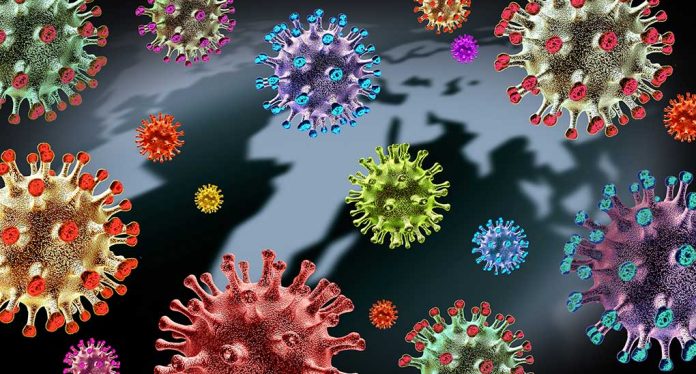
This winter, the United States is experiencing a troubling increase in norovirus cases, showing the importance of understanding prevention and treatment strategies.
At a Glance
- Norovirus causes more than half of foodborne illness cases in the U.S.
- Symptoms include vomiting, diarrhea, and abdominal cramps.
- Maintaining good hygiene is critical for prevention.
- Treatment focuses on managing symptoms and preventing dehydration.
Understanding Norovirus: The “Winter Vomiting Bug”
Norovirus is a highly contagious virus responsible for viral gastroenteritis. In the United States, it is a leading cause of foodborne disease outbreaks, with 19-21 million illnesses annually. Norovirus mainly spreads through contaminated surfaces, food, water, or direct contact with infected individuals. The virus can cause symptoms like sudden vomiting, diarrhea, abdominal cramps, and sometimes a low-grade fever.
In confined spaces such as cruise ships, camps, dormitories, and hotels, outbreaks are particularly common. Foods like ready-to-eat cold items and raw shellfish, including oysters, pose a high risk for norovirus contamination. The virus is not airborne but can become aerosolized, especially through vomiting, increasing the risk of infection.
Diagnosing and Managing Cases
Diagnosis of norovirus is generally based on symptoms, though RT-qPCR testing provides reliability in laboratories. Individuals typically exhibit symptoms within 12 to 24 hours of exposure. Most cases require no specific antiviral treatment and resolve within three days, guided largely by the person’s immune health.
For those infected, rehydration is crucial to prevent dehydration, often achievable with oral rehydration solutions or, in severe cases, intravenous fluids. Over-the-counter medications for diarrhea and nausea can offer relief when recommended by healthcare providers.
Residents are urged not to prepare food for others until their symptoms have subsided to reduce transmission. Alcohol-based hand sanitizers are inadequately effective against the virus, making thorough handwashing with soap and water essential. Cleaning surfaces with bleach-based products can further help prevent the virus’s spread.
Prevention as Key Strategy
Avoiding contaminated food and water and maintaining hygiene are primary defenses against norovirus. During outbreaks, especially where isolation can be an option, such as in institutions or cruise ships, isolating infected individuals is recommended.
“For most people, it’s not dangerous, but it’s definitely unpleasant,” said Kimon Zachary, MD, a Mass General Brigham infectious diseases doctor.
Despite ongoing efforts, no vaccine currently exists for norovirus, though research is underway. The development of such a vaccine could significantly mitigate the impact on public health. Health officials also highlight the introduction of a new strain, GII.17, which has contributed to the recent surge in norovirus cases by lowering population immunity.


